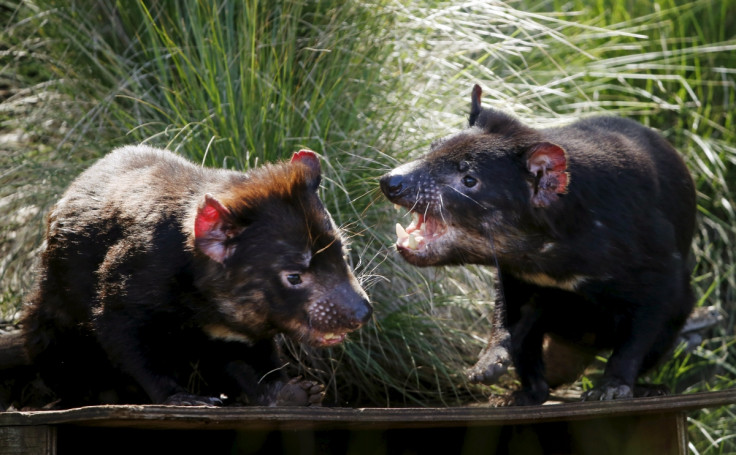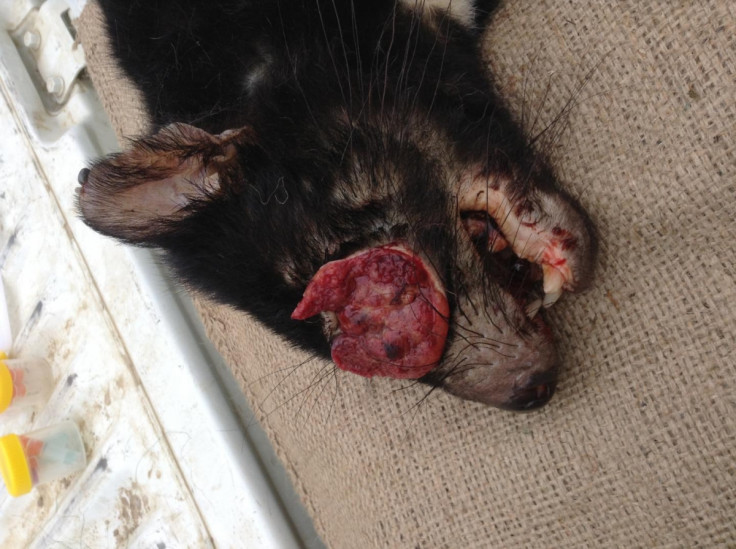Endangered Tasmanian devils threatened by second type of transmissible cancer

A second type of transmissible cancer has been discovered among Tasmanian devils, with eight cases currently documented among the endangered marsupial carnivores. Scientists from the University of Cambridge and the University of Tasmania say their discovery could indicate the emergence of transmissible cancers is not as rare an event in nature as previously thought.
Tasmanian devil numbers plummeted in the late 1990s and 2000s. It was discovered the species was suffering from a transmissible form of cancer that affects the face and mouth, with the disease being spread by biting. The cancer – Devil Facial Tumour Disease – spreads rapidly through the creature's body and they normally die within months of symptoms appearing. Conservation efforts are currently under way to save the species from extinction.
However, a second type of transmissible cancer has now been found – although outward symptoms appear much like Devil Facial Tumour Disease, the cancer is genetically distinct. The first case was identified in 2014 – analysis of the Tasmanian devil's cancer showed it had different chromosomal rearrangements to the first. Since then eight more cases have been found in the same area of south-east Tasmania. Researchers published their findings in the journal PNAS.
Cancer normally occurs when cells in the body start to multiply and grow uncontrollably because of faulty signals in the body. When cancer spreads in the body, it is known as metastasis. However, cancers do not normally survive beyond the body of the host whose cells they arose from.

Transmissible cancers can spread between individuals through the transfer of living cancer cells. This form of the disease arises when cells gain the ability to spread beyond the body of the being that first spawned them.
Other than Devil Facial Tumour Disease, there are only two other cases of transmissible cancer documented – one in dogs and one in soft shell clams – leading scientists to believe they are extremely rare in nature.
Professor Gregory Woods, joint senior author of the study, said: "Previously, we thought that Tasmanian devils were extremely unlucky to have fallen victim to a single runaway cancer that emerged from one individual devil and spread through the devil population by biting. However, now that we have discovered that this has happened a second time, it makes us wonder if Tasmanian devils might be particularly vulnerable to developing this type of disease, or that transmissible cancers may not be as rare in nature as we previously thought."
"It's possible that in the Tasmanian wilderness there are more transmissible cancers in Tasmanian devils that have not yet been discovered. The potential for new transmissible cancers to emerge in this species has important implications for Tasmanian devil conservation programmes."
The researchers say the finding has important implications for the understanding of the process through which cancers become transmissible. They said it could be the case that Tasmanian devils are particularly prone to transmissible cancers, but added: "More generally, our findings highlight the potential for cancer cells to depart from their hosts and become dangerous transmissible pathogens."
© Copyright IBTimes 2025. All rights reserved.






















